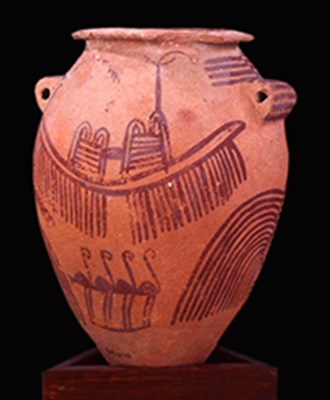
-
Published: 25 January 2023

Qadan culture (Egypt)
25-Jan.-2023
Edited by| Alexander yanixana
The Qadan culture (13,000–9,000 BC) was a Mesolithic industry that, archaeological evidence suggests, originated in Upper Egyp
(present-day south Egypt) approximately 15,000 years ago. The Qadan subsistence mode is estimated to have persisted for approximately 4,000 years. It was characterized by hunting, as well as a unique approach to food gathering that incorporated the preparation and consumption of wild grasses and grains. Systematic efforts were made by the Qadan people to water, care for, and harvest local plant life, but grains were not planted in ordered rows.
Around twenty archaeological sites in Upper Nubia give evidence for the existence of the Qadan culture's grain-grinding culture. Its makers also practiced wild grain harvesting along the Nile during the beginning of the Sahaba Daru Nile phase, when desiccation in the Sahara caused residents of the Libyan oases to retreat into the Nile valley. Among the Qadan culture sites is the Jebel Sahaba cemetery, which has been dated to the Mesolithic.
Qadan peoples were the first to develop sickles and they also developed grinding stones independently to aid in the collecting and processing of these plant foods prior to consumption. However, there are no indications of the use of these tools after around 10,000 BC, when hunter-gatherers replaced them.
